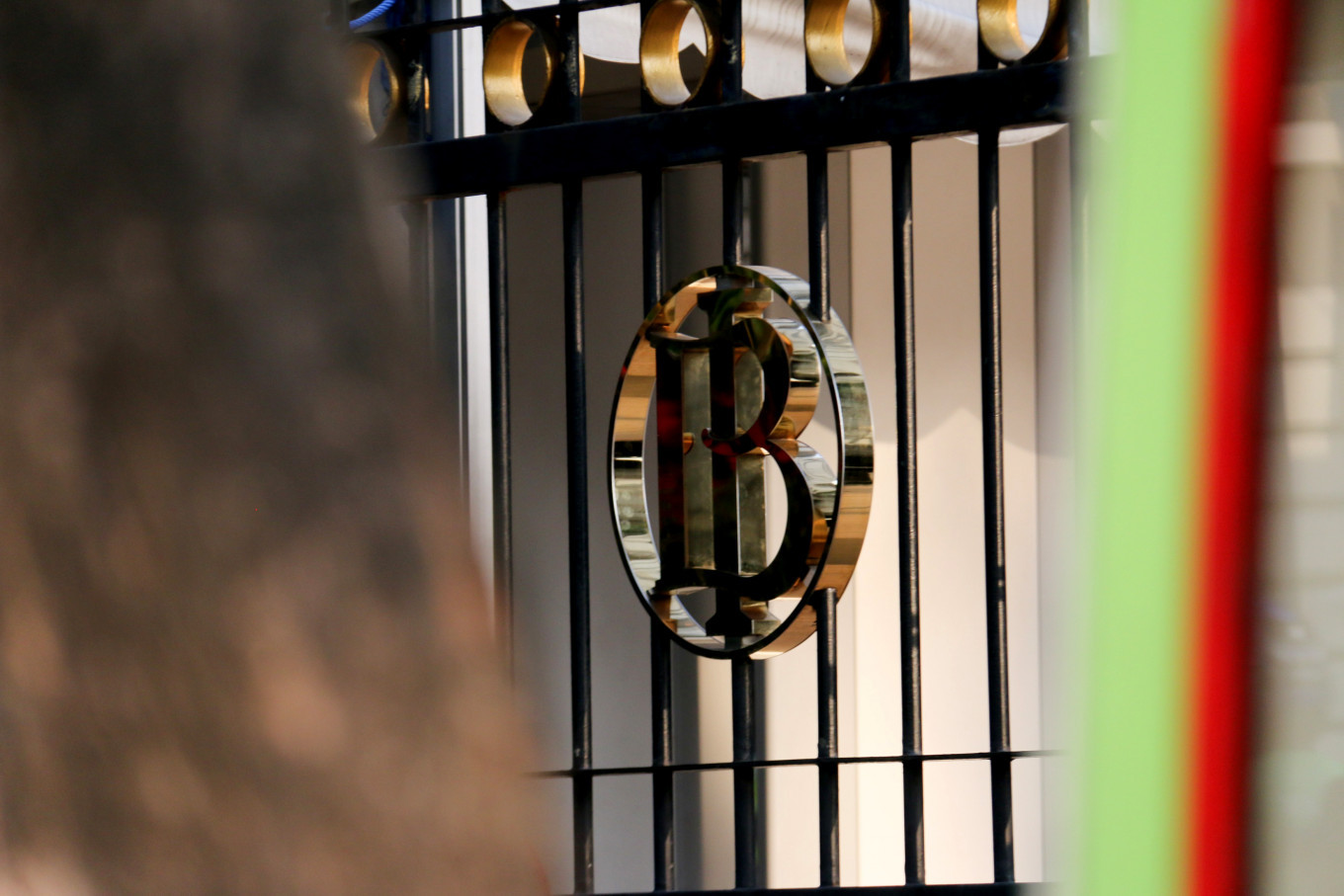Popular Reads
Top Results
Can't find what you're looking for?
View all search resultsPopular Reads
Top Results
Can't find what you're looking for?
View all search resultsBank Indonesia to relax credit card regulations to fuel virus-battered economy
Bank Indonesia will relax rules on credit cards, including lowering the maximum interest rate and late payment penalty.
Change text size
Gift Premium Articles
to Anyone
Bank Indonesia (BI) will relax rules on credit cards, including lowering the maximum interest rate and late payment penalty, to boost cashless transactions and fuel economic activities during the coronavirus pandemic.
BI Governor Perry Warjiyo said the regulation would serve as a stimulus for credit card holders and businesses to boost the virus-hit economy. The relaxation will take effect starting on May 1 and remain in place until the end of the year.
“This is aimed at expanding the use of cashless transactions to mitigate the COVID-19 impacts,” Perry told reporters after BI’s board of governors meeting on Tuesday. “We are working to maintain macroeconomic and financial system stability, as well as [ensure] economic recovery.”
The central bank decided to lower the credit card interest rate to 2 percent per month from the current 2.25 percent and slashed the minimum credit card payment from 10 percent to 5 percent of total outstanding credit.
Furthermore, it will also lower the late payment penalty from the current 3 percent of the outstanding amount or a maximum Rp 150,000 (US$9.51) to 1 percent or a maximum of Rp 100,000.
Households spending, which accounts for more than half of the country’s gross domestic product (GDP), is expected to decline as the pandemic forces citizens to stay at home and lowers demand, as some people have lost jobs and income. According to the government’s worst-case scenario, 3.78 million people could fall into poverty and 5.2 million could lose their jobs amid the pandemic, while the economy could contract by 0.4 percent this year.
The central bank has cut its benchmark interest rate twice this year by 50 basis points in total to help boost Indonesia’s economy. The lower policy rate is expected to be transmitted into lower interest rates on various bank loans, ranging from consumer to corporate credit.
According to BI data, some 27 million credit card transactions amounted to Rp 25.86 billion in February, marking a slight increase from February 2019, when 26.4 million transactions added up to a total of Rp 25.81 billion.
Indonesian Credit Card Association chairman Steve Martha said the regulation would directly benefit consumers that might face financial problems caused by the COVID-19 pandemic, adding that it would also benefit the industry in the long run.
“As businesses close and lay off employees while people are forced to stay at home, they may have problems with paying their credit card bills,” Steve told The Jakarta Post on Thursday. “We see some risks to the industry, and this regulation comes to ease consumers’ burden.”
“We are hoping that this regulation can help credit card holders with paying their bills, so the industry could reduce the risk of rising nonperforming loans,” Steve said.
Steve said the industry’s NPL was around 2 percent, adding the coronavirus pandemic “no doubt” would cause a higher bad debt ratio if not for intervention by government authorities.
He admitted that the rising NPL had yet to be seen in March, but credit card transactions had started to slow compared to the previous month.
The virus has infected more than 2 million people around the globe – including more than 5,500 in Indonesia, according to official data – forcing factories, shops and schools to close in various countries amid government-imposed lockdowns and social restrictions. The situation has upended supply chains, forcing companies to lay off employees and crushed demand for goods as consumers stay at home.
Contacted separately, Center of Reform on Economics (Core) Indonesia research director Piter Abdullah told the Post that the relaxed regulation would have a positive impact for businesses and the banking industry, adding that it would boost consumer spending and reduce NPL risks.
“Although the government has rolled out appropriate fiscal stimulus, they must not allow a protracted health crisis, because it may cause another banking crisis like in 1998,” Piter said, expressing confidence that economic policies had been aggressive enough to prevent economic meltdown.
However, if the government is unable to curb the virus spread, while factories and businesses remain closed and people stay indoors, such a situation could trigger a financial crisis similar to that in 1998, when borrowers defaulted on their payments and banks declared bankruptcy, Piter warned.
“The 1998 NPL level of around 60 percent was caused by deep corruption, nepotism and careless debt handling, both in businesses and in the government,” Piter went on to say.
“It may not be repeated this year, since the banking industry and businesses were in a healthy condition before the virus struck,” Piter said. “Thus, the government and central bank must do everything to prevent spill-over from the health crisis into a financial crisis.”










